|
A bunch of people are participating in a Black Friday book giveaway, and I have decided to chip in a free copy of All the Pretty Bones and a $10 (US) gift certificate for Amazon.com. The contest will open at midnight on November 28th, and a winner will be announced on the 29th in the comments of this post. Enter for a chance to win: The last I checked, there are 68 other bloggers participating in the Black Friday Book Bonanza. That's a lot of books and prizes! Click on the link below to check them out:
3 Comments
by Camela Thompson Vampire mythology has several common constructs in literature, television shows, and movies. As a rule, vampires are humans who have been converted to vampirism by either a bite or exchange of blood. The moment of transformation kicks off with the infected human's death. While vampires have a varying degree of humanity depending on the writer(s), they've remained intolerant of sunlight, drink blood, possess inhuman strength, have poor impulse control, and often become inappropriately enamored with the worst love match possible. Because vampires are fictional, there has always been some variation in the details, particularly around how they are converted and how much they enjoy hunting humans. In my own reading I've noticed a trend: authors are drastically deviating from the norm. Philip Burne-Jones [Public domain], via Wikimedia Commons, 1897 The first time I remember thinking, "Woah, they broke the rules," was when I watched Blade. A pregnant woman was infected by a vampire just before giving birth. The child was a vampire hybrid, inheriting the vampire's strengths but none of the weaknesses. With the help of others, he fought his thirst for blood and kicked much vampire ass. Since then, there has been a streak of change-ups to the myth. Twilight vampires could abstain from human blood if they had the necessary willpower. They avoided sunlight because they sparkled like Liberace's piano. J.R. Ward's Black Dagger Brotherhood has a fantastic hereditary vampire mythology with a race of warrior vampires. Kresley Cole has some traditional vampires and others who were born that way. Then there is The Strain, which has roots in Romanian mythology with a virulent twist.
Why the variation? Why are there rules if people just break them? Because it's more interesting. Because there are more options. If we stuck to the same rules every time, there would only be so many options, and that gets old really fast. I personally enjoy it when an author takes liberties and changes vampires to fit the world they've created. The flavors have become very interesting and make me wonder what the vampire will look like in twenty years. Do you prefer it when authors stick to tradition, or do you like it when an author comes up with a legend of their own? What is your favorite flavor of vampire? by Camela Thompson Nelson Mandela once said, "I learned that courage was not the absence of fear, but the triumph over it." Fear has played a pervasive role in my life. It has paralyzed me into inaction, corralled me into irrational behavior, and provided me with enough hurdles to last a lifetime. I have slowly been conquering many of those fears, or at least ignoring them in the interest of achieving goals, but silencing my inner critic is a constant struggle. The little voice on my shoulder spewing about my inadequacies drives me, but it comes with a high price. I have wanted to dye my hair purple for years. Fear held me back from making the change. How would it look? What would people think? Living in Seattle made me less concerned about what people would think. There are a few coworkers who are highly respected for their work and rock unconventional looks. One of our program managers has gorgeous black hair with a huge chunk of electric blue. Others have had neon highlights, mohawks, and rainbow hair. There are tattoos, piercings, body modifications, and more - and most of us don't bat an eyelash. There are still some ignorant people out there, but Seattle is a pretty progressive place to live. Another perk... most tech companies have a really relaxed dress code. After all of these years, I have finally dyed my hair. Other authors inspired me along with a drive to push past the fear. I still startle myself when I look in the mirror and am discovering how ignorant I was about the nuances of caring for it, but I love it. I'll be color coordinating my outfits for a while, but it's worth the effort. The only strange thing has been the question that keeps cropping up from people who aren't close enough to know my husband - Is your marriage okay? People assume that the drastic change is stemming from relationship issues. Fortunately, this isn't the case.
My purple hair is a reminder to move past the fear and enjoy life. Have you conquered any of your fears? by Camela Thompson The first writing advice I received was to write what I know. While it's impossible to truly know vampires, I love reading about them and watching anything that features them. I have a long list of favorite television series, movies, and books that continues to grow. Those of us who love the subject matter know of Anne Rice, Charlaine Harris, Stephenie Meyer, and Richelle Mead. The following writers are also well known, but perhaps you'll meet someone new to try out. By J Alves (http://www.openclipart.org/detail/60247) [Public domain], via Wikimedia Commons Gail Carriger
Carriger combines Victorian wit, Steampunk, high society sensibilities, and supernatural creatures masterfully. There are very few books that make me laugh out loud. Etiquette & Espionage not only made me laugh, but had me grinning like an idiot throughout. Carriger's dialogue is wonderful, the names she comes up with are amazing (Mrs. Barnaclegoose? brilliant!), and her world building is superb. I love her wit. Even the minor characters are delightful and full of personality. I enjoyed the Parasol Protectorate series, but I have to say Finishing School, her foray into Young Adult, has become my favorite. Some of the time lapses are a little clunky, but I would certainly recommend it as an entertaining read. Alys Arden The first couple chapters of The Casquette Girls was a little bit difficult for me. I don't typically read young adult, I prefer my stories in the third person, and the author chose a really difficult setting - post hurricane New Orleans. As I continued to read, I became sucked into the story. The time Arden spent building her world paid off, and I could picture the alternate universe with ease. Her characters are very engaging and her love of the city shone through. If you like vampires and magic, read it. Richard Matheson My praise for I am Legend can be found by clicking here. The book is nothing like the movie. J.R. Ward Do you like graphic romance or erotica? Have a thing for ultra alpha males? Like your vampires sexy and dangerous? J.R. Ward accomplishes all of this and more. Her writing is solid, she's great at developing back story, and she has created an amazing vampire mythology of her own. I'm a big fan of the Black Dagger Brotherhood series with my favorites being Dark Lover, Lover Awakened, and Lover Unbound. Matt Haig The Radleys was an impulse buy that paid off. This isn't a traditional vampire novel. It struck me as a cross between The Adam's Family and The Royal Tenenbaums. The main focus of this book is the family dynamic with an array of interesting and complicated characters. If you're interested in the moral dilemmas faced by a modern-day vampire, this is a great read. I'm always looking for my next favorite. Do you have any vampire books you love? As a prolific reader, I understand the subjective nature of books. And I might have a problem. Most surfaces in my house are covered in books... by Camela Thompson Several communities that revolve around literature have been buzzing from a recent article involving an author with an unhealthy and somewhat unnerving interaction with an online reviewer. Since this article was posted, I have read blog post after blog post exploring every angle. I've seen book bloggers swear off reviews, authors swear off interacting with reviewers, and reviewers recounting their own horror stories. After reading all of these posts, I walked away with a healthy amount of fear. Should I follow advice and ignore reviewers, or thank them for their time? The minute I made the decision to publish, it was with the realization that my writing would be judged countless times from that moment forward. Agents and editors would have the opportunity to evaluate the premise and decide whether or not they were interested in any more material. Those who decided to read more would have the opportunity to judge those extra pages and determine whether to request more material or pass on my work. Then publishers would review the material - the one I signed a contract with sent my manuscript off to a panel of volunteer readers to help gauge the market appeal of my book. Once it made it past the publishing process (edit, revise, edit, revise, proofread, revise, proofread), it was time for the really scary part. Would the readers like it? I'm human and I care about what people think. I have also read and reviewed many books and realize that fiction literature is a very subjective thing. I have genre and character preferences that don't always fall in line with popular opinion. I've read books and read other people's reviews and wondered what planet I was on when I read the same book they were talking about because I walked away with a vastly different opinion. This isn't a bad thing. In fact, it's one of the many things that makes reading so exciting. Each person walks away with something different. The right response to a review might be to say nothing at all. I personally believe this is true for Goodreads and Amazon reviews. When I review a book on these websites, I don't expect to hear from the author. I'm not as sure about how to interact with book bloggers. They spend a lot of time not only reading the book, but posting about it. It may be okay to post a professional thank you (and by professional I mean never argue with or comment on their assessment - just a thank you for their time).
I have decided to stay silent for the most part, but this doesn't mean I'm not thankful. Each time someone reads my book, they are dedicating time that could be spent elsewhere. When I decided to put my book out in the world, it was with the understanding that it is my responsibility as an author to respect the opinions of others. When you write a review, what do you prefer? Do you have a blog and feel different about responses to a blog post versus something posted on Amazon or Goodreads? See what reviewers are saying about All the Pretty Bones. by Camela Thompson Champ was born on a stormy Halloween night in 2001. His litter was birthed in an indoor run at the animal shelter, a few spaces away from a dog that had been brought in covered in mace after mauling its owner. The shelter water was dirty and the puppies contracted giardia. Champ's mom was feral and the puppies took after her, scattering when the shelter brought in children to socialize the litter. It wasn't the best start, so it shouldn't have been a big surprise that Champ began life with some issues. He loves the snow. I walked through two animal shelters before pausing at a run with a bunch of puppies. Some looked like little foxes, and some had wild, curly white hair and pink noses. One of the foxes ran to the front of the run and stood on his hind legs, putting his front paws on the chain link fence to beg for me to pick him up. I only had eyes for that dirty little boy, and I didn't figure out he was covered in poop until he snuggled into my chest. If I missed that, it shouldn't be a surprise that I also missed that the rest of the litter was crammed in the back of the run to stay away from the humans. I finally suspected there would be a problem when I got him home and he crammed himself under a couch upon seeing a roommate. Champ has always been suspicious of humans, especially men. He's odd around children, unless they are raised with him, so we avoid small strangers. It's a little embarrassing when people ask me if he was adopted when he was older, because an abusive previous owner would explain his behavior - but it's just how he is. I used to judge people with these skittish dogs, assuming they had done something terrible to their dog. Champ taught me that some animals are naturally suspicious. I tried for the first two years to socialize him, take him to classes, and push him to change. That didn't work well - it only stressed us both out. I learned to explain to people that he needs his space. With a dog like Champ, I learned it is my responsibility to be his advocate, keep him out of social environments, and take charge of situations when he feels uncomfortable so he gets the space he needs. He may be suspicious around people, but he has always been wonderful with other animals. He's befriended horses, dogs, and more. As Champ aged, he learned to trust me more. When someone visited, he watched my reaction and stood back, trusting that I would let him know if things weren't okay. He stopped hiding behind things and eventually became more relaxed, laying where he could watch but had his space, quietly observing. We would stick to activities like walking through the neighborhood and hiking, avoiding playgrounds and crowded places. I wouldn't say he would like it if I hosted a party, but he's mellowed out. Quirks can make it difficult to live with a dog, but sometimes they make you appreciate the relationship you build with an animal even more. Champ is the most loyal dog I've ever had. He isn't clingy, but he likes to be in the same room, watching over the people he loves. As he has aged and his hearing and vision have been robbed, he's mellowed out even more. I don't think that would be the case if he didn't trust me. Champ still greets me every day I get home from work with a shoe or a toy, carrying it through the house to the back yard. The old man is slowing tremendously. I don't know how much time we have left. He has cataracts, hearing loss, lumps, bumps, and many issues. He walks slowly, the Cushing's disease has wasted away his muscles, and he has some neurological problems. The vet assures me he seems happy and doesn't appear to be in pain. I agree but get paranoid my love for him will cloud my judgment and make me greedy for more time. I suppose it's a good sign that he still bosses around my husband and bounces around when he wants treats. On his thirteenth birthday this Halloween, Champ got pumpkin with his home cooked meal and extra car rides. He asked to get up on the couch while we watched television, something he hadn't done in months. I am thankful for every day we get with him in his old age. Do you have an elderly dog or a dog that was difficult to live with? How did the challenges impact your relationship?
by Camela Thompson When I first started day dreaming about publishing a book, I was under the impression that I would hand my polished manuscript to an agent and they would do the rest. That's laughable now. I hear agents are wonderful, but the author is still involved in editing and, more often than not, the burden of marketing lands on the author's shoulders. Not many authors have publishers pouring money into advertising, and it's our job to figure out how to get our book in front of the public. This is easier for authors lucky enough to have an established reader base, but us newbies have to work hard to earn every reader. I am lucky that Booktrope, my publisher, has me work with a book manager. Her efforts were instrumental in turning around an online launch that looked doomed to fail. Sometimes doing things the wrong way teaches us the biggest lessons, and I was lucky to have someone swoop in and save the day. Facebook Launch? A Facebook launch party actually occurs on Facebook, not at a physical location. People meet online at a designated time and the author posts excerpts, contests, and a lot of related content. It is a great way to reach people outside of your personal network - across the country and even internationally. Just remember to start the event from your author page (oops - you can't change this once you set it up). Join online book clubs that post launch party announcements and attend at least one before you throw your own. For more information on Facebook launches and some great advice, click here. Social Media Works. Sometimes. Social media is crucial for authors. It's a wonderful way to meet people, learn tricks of the trade, and network. I swore I would never join Twitter, and now I love it. That said, it does not generate sales. I've met a lot of authors, had some great dialogue, and laughed out loud at some pictures and quotes. I do use it from time to time to notify people that I have an event coming up and I'm not shy about retweeting flattering posts, but it didn't help me get more launch party attendees. What did work was joining Facebook book clubs that focus on my genre and allow promotional posts. I joined several groups and posted once or twice about the event with details on a contest we started a week in advance of the launch date. Teaser Graphics are Crucial The only time I did get responses to launch party announcements was when I included a graphic with a teaser quote. I followed the instructions from Page Curl (click here) and came up with a few quotes that I thought were intriguing and matched them up to graphics that matched my storyline. Contests
When you set up your online Facebook Launch page, start a contest that rewards people for inviting people to your launch. Attendees are the most important part of the party, so make the reward a good one (a free ebook and a gift card to Amazon or Starbucks is a great idea). Set up a poll in a comment and leave it open for people to add their own "answers." This will allow people to add the name of the person who invited them and vote for them. The person with the most votes by the beginning of your party wins. It also doesn't hurt to have a contest for an Amazon gift card for people who purchase the book before the launch party. It helps to have people familiar with your book when you open up dialogue in your launch party, and people have incentive to buy the book. Other contest ideas:
Plan Your Content To keep a good amount of comments and dialogue going, plan to post every fifteen minutes. Posting excerpts, photos, and other content related to your book is great, but make sure the posts are engaging and allow for continued interaction. Each time you ask a question, you open up an opportunity for readers to respond. Make sure to monitor all of the comments, respond to them, and pose thoughtful questions. Guest Authors If you know anyone who has published a book that is related to your own genre, this is a great way to get some cross promotion. They attend so their readers are invited and you have a break for an hour during the launch. Launch parties typically run at least five hours, and generating content and monitoring those comments and responses is exhausting. Scheduling guest authors is a great way to get a break. Don't know any authors? Get on Twitter and Facebook and strike up some connections! Conclusion I made some missteps and was clueless about how to get more attendees. My book manager immediately set up a contest to generate more attendees and taught me about Facebook book club groups. In four days she took my attendee count from 10 to 162, which was awesome. I believe the launch went well because we had a lot of interaction with attendees and hundreds of comments. There were some really great conversations and I had a lot of fun! It did generate a modest amount of sales, but the important thing was that it did get my name out there. For that I am grateful. Have you attended a Facebook launch you enjoyed? What did you like about it? Have you hosted a Facebook launch? What were your take aways? |
Camela ThompsonFreelance writer and Dark urban fantasy author featuring vampires with bite. My BooksCategories
All
Archives
July 2020
|

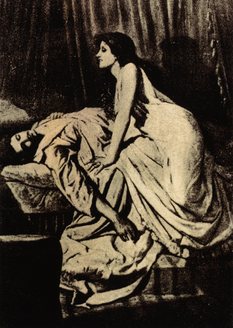
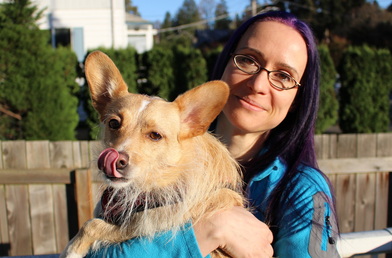

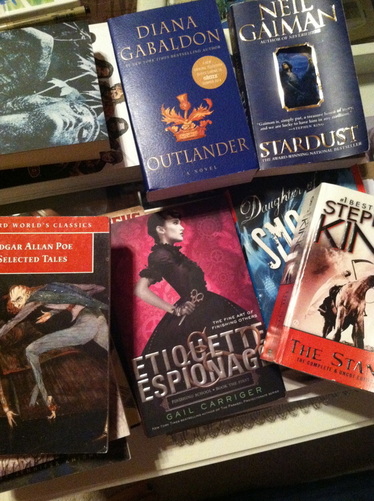
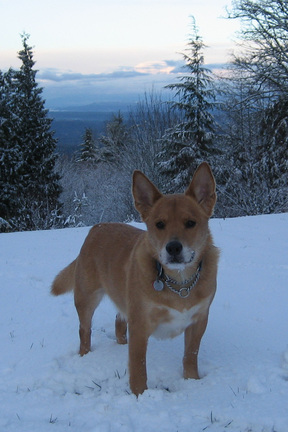
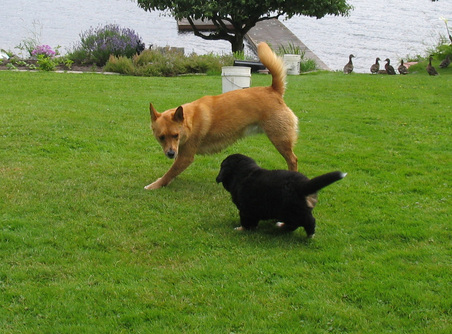

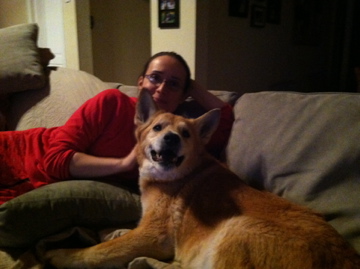
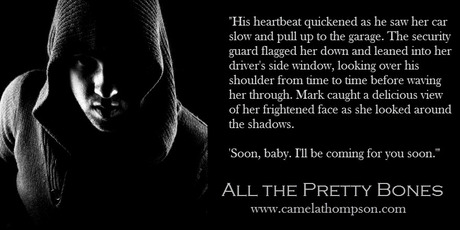
 RSS Feed
RSS Feed